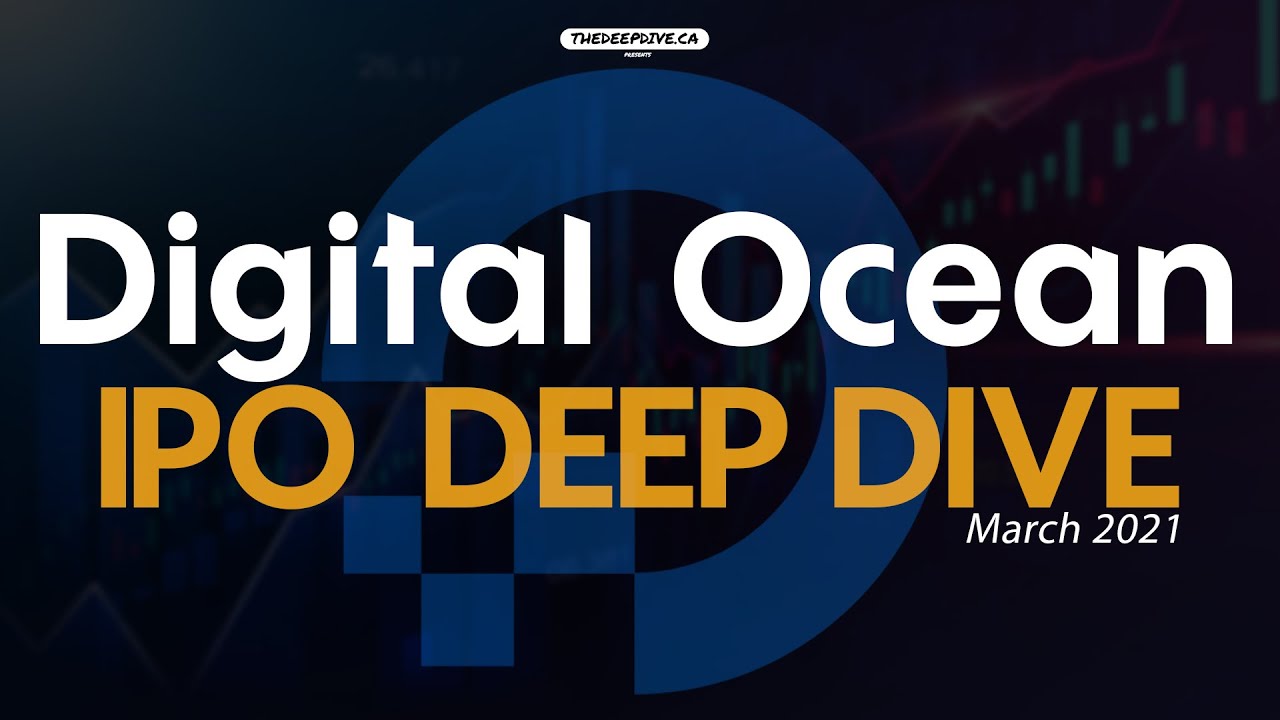DigitalOcean (NYSE: DOCN) is a cloud infrastructure provider, with its headquarters located in New York City, USA, and data centers located all around the globe. The company is presently headed by its current CEO, Yancey Spruill, a former executive at SendGrid, a communication platform for transactional and email marketing.
Presently, DigitalOcean Holdings Inc is aiming for a valuation of nearly $5 billion for its U.S. initial public offering (IPO) this week. The company is looking to raise as much as $775.5 million through an offering of 16.5 million shares.
Two Brothers With A History Of Entrepreneurship
DigitalOcean was founded back in June 2011 by brothers Moisey and Ben Uretsky. The duo have a history of collaborating for digital businesses dating back to 2003, when they founded ServerStack. This lead to the creation of DigitalOcean, which was based on providing cloud hosting and server-related services for software developers.
The company grew quickly to a clientele of 400 before the end of 2012 and this growth accelerated further into 2013 after being featured by TechCrunch, DigitalOcean focused on a global expansion, with substantial continued growth throughout 2014. By 2018 the company had experienced such significant growth they brought on Mark Templeton, previously CEO of Citrix, to take the reigns as CEO.
According to Crunchbase, the company raised $37.2M in their Series A Equity Financing back in March 2014, followed by $82M in 2015, and recently closed their Series C Equity Financing in May 2020 for $50M with a pre-money valuation of $1.1B.
Today, DigitalOcean has become one of the leading cloud computing platforms offering on-demand infrastructure and platform tools for developers, start-ups, and small and medium-sized businesses. The core of Digital Oceans offerings is based on what they describe as a “platform-as-a-service” business model.
How the Business Works
DigitalOcean caters to software developers, engineers, researchers, data scientists, system administrators, students, and even hobbyists. DigitalOcean’s revenue is generated from the usage of their cloud computing platforms to include, but not limited to, computing, storage, and networking services.
Their services are priced on a consumption basis and billed in monthly arrears: e.g. at the end of each calendar month, they calculate the cost of the customer’s server based on the size of the droplet. In 2020, most of the company’s revenue was generated mostly in North America (38%), followed by Europe (30%), and Asia (22%), while 10% of their total revenue was generated from their services in other parts of the globe.

The global cloud computing market size is expected to grow from USD 371.4 billion in 2020 to USD 832.1 billion by 2025, at a Compound Annual Growth Rate (CAGR) of 17.5%.
Generates Operating Cashflow, but Fails to Generate Free Cashflow
DigitalOcean has experienced strong revenue growth and improving margins in recent periods. For the years ended December 31, 2018, 2019 and 2020, their revenue was $203.1 million, $254.8 million, and $318.4 million, respectively, representing year-over-year growth of 25% in 2019 and 2020. Net losses over the period however also grew, with the company reporting a net loss of $36.0 million in 2018, a loss of $40.4 million in 2019, and finally a loss of $43.6 million in 2020.


Main Competitors Are Behemoths
Competitors to DigitalOcean include the likes of Amazon, Oracle, Microsoft and Google – but an array of small competitors include Netrepid, Hostwinds, Linode, Vultr, OVHcloud, and A2 Hosting.
Cloud computing is revolutionizing how companies across the globe develop and deploy applications. The cloud offers lower upfront cost and superior flexibility, extensibility and scalability as compared to on-premise software development environments. These benefits are especially valuable for start-ups and SMBs, as they typically have more limited financial resources, operational expertise and IT personnel. As software and cloud-based technologies have become essential across industries and businesses of all sizes, the number of software developers and their strategic importance to organizations are both increasing significantly. According to SlashData, the number of developers globally was 19 million in 2019 and is expected to grow to 45 million by 2030.
DigitalOcean Makes Cloud Infrastructure Simpler than the Big Guys, But Not Simple Enough for Newbs
DigitalOcean describes their competitive advantage as the following:
- Simplicity – They take infrastructure technology and made it simple across all aspects of the of the product experience.
- Customer Support – They provide live support to all customers, regardless of price point. They also provide free access on their site to tens of thousands of helpful documents.
- Community – They invest heavily in the community of developers and entrepreneurs by helping them in the early stages of idea generation, by providing them with various resources to guide the customers in successfully pursuing their ventures.
- Open Source Software – Through their open source software they enable a faster and lower-cost innovation without locking customers into a proprietary software technology stack.
In just minutes, developers can set up thousands of virtual machines, secure their projects, enable performance monitoring and scale up and down as needed.
Having used DigitalOcean’s infrastructure, they check the boxes on simplicity and price, but fail miserably in terms of customer service. The platform seemingly is great for a system administrator who knows how to navigate a primitive cloud infrastructure; at which point they should be sophisticated enough to navigate a product like Amazon Web Services. And if a user is looking for a more service-oriented hosting product, more expensive services such as GoDaddy and HostGator are likely to meet their needs.
Will Operating Leverage Ever Open Up?
We question whether any operating leverage will ever open for DigitalOcean. The top two competitors they are up against are Amazon and Google; companies with central bank like balance sheets who are monetary creation machines. DigitalOcean seemingly generates a great operating cash flow and a solid adjusted EBITDA number each year, yet they fail to produce free cashflow due to the overall fixed costs of their infrastructure.
It is hard to justify a valuation of nearly $5B, for a company that fails to generate free cashflow after 7 years in a race to the bottom industry.
But… We’re in a New Normal
2021 is a different time for tech and growth names. Investors seem to be more focused on total addressable market and top line revenue growth than anything else. Investors are searching for disruption and at times are willing to grasp at straws to find it. In an environment where the federal reserve seemingly will not let stocks go down, names like DigitalOcean appear to be attractive bets regardless of valuation. And trust us, we managed to restrain ourselves from using GoDaddy as a comparable, no matter how tempting it was at times.

DigitalOcean looks like an extremely popular stock for today’s retail investor which we feel is unmerited. And based on the desired IPO price of nearly $5B, bankers and backers seek multiples in line with Zoom, Shopify, and Crowdfire. If successful they will ignite a boom of similar cloud infrastructure and low-cost hosting providers who suddenly may find themselves the pretty girl at the dance amongst VCs and bankers seeking to capitalize off the private to public arbitrage, we all know too well.
In a fast money world where companies are valued on metrics like Price to Sales ratios, overall revenue growth, and ability to scream “we’re disruptive tech,” – DigitalOcean appears to have it all. Just don’t get left holding the bag if there is ever a return to common sense investing.
Information for this briefing was found via Edgar & the companies mentioned. The author has no securities or affiliations related to this organization. Not a recommendation to buy or sell. Always do additional research and consult a professional before purchasing a security. The author holds no licenses.









